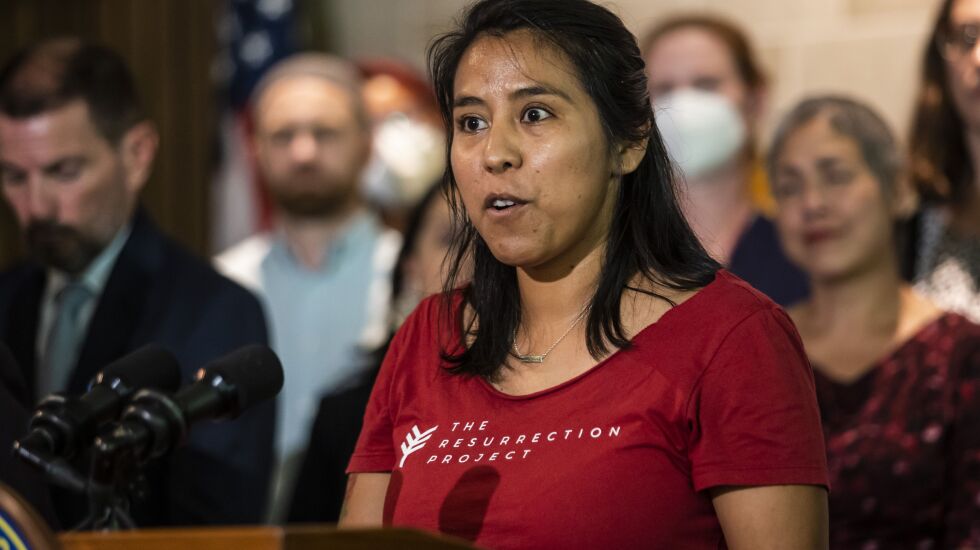The first of the White House-sponsored work authorization clinics in Chicago launched Thursday, giving 150 migrants a one-stop-shop where attorneys helped fill out applications and federal workers began processing them on site.
The clinic, run by Pilsen-based nonprofit the Resurrection Project and several other legal services partners, is the first in a pilot program meant to speed up work permit processing for migrants arriving in the city.
It comes as the backlog in authorization processing has left more than 12,000 migrants who may not be able to find work living in shelters and over 3,000 of them unhoused at police stations and airports.
The clinic aims to cut the processing time for migrants to get authorization to work from almost a year to just a couple of months, said Erendira Rendón of the Resurrection Project.

It will run two days next week, close the week of Thanksgiving and then reopen the following week for “two-week sprints,” Rendón said, where it will open five days a week with a week off every two weeks.
It is expected to begin serving 300 people daily then and operate until all eligible migrants in Chicago have applied, Rendón said. There are about 11,000 eligible migrants in the city, according to the Illinois Department of Human Services.
For now, the clinic is focused on processing applications for migrants in shelters. Rendón said they register for appointments at the clinic online and then receive transportation to the site.
It is staffed by 30 attorneys from the Resurrection Project and 20 partner organizations, as well as U.S. Citizenship and Immigration Services.
The city is not revealing the location of the clinic for safety reasons.
Nearly 21,000 migrants have arrived in Chicago since August 2022.
Without work authorization, they’re left dependent on the city, creating the process of staying first at police stations, then city shelters when room becomes available, and finally, in a state-sponsored apartment. By the time six months of rental assistance runs out, migrants hope to have received authorization and can legally work.
In a call with reporters Thursday afternoon, Beatriz Ponce de León, deputy mayor for immigrant and refugee rights, called the clinic’s opening an “exciting moment” that was a product of persistent lobbying of federal officials.
The next step, Ponce de León said, was to begin working with federal officials on a workforce development program to ensure that migrants were placed in jobs allowing them to become stable Chicagoans.
Rafael, a migrant who attended the clinic with his pregnant partner, hopes that’s the case for him and his family soon.
The couple arrived in Chicago last month and are staying at South Side shelter, where he said they got help registering for the clinic and transportation.
His partner was waiting inside, out of the cold and where she could sit.
With the baby due in just a few months, the 27-year-old was feeling the stress the impending birth and dwelled briefly on stories people at the shelter had been told of being exploited for their labor.
“They’ll pick you up, take you work all day and then leave you with just $40,” he said.
Now, however, he understands that because of the clinic, their work authorizations should arrive around the same time as the baby.
“Thank God, we’ll be settled soon,” said the soon-to-be father, “I’ve got to be able to find work.”
Michael Loria is a staff reporter for the Chicago Sun-Times via Report for America, a not-for-profit journalism program that aims to bolster the paper’s coverage of communities on the South Side and West Side.







